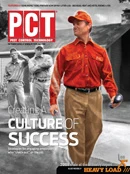Like all small businesses, pest management companies are finding it difficult to deal with escalating health-care costs and their impact on the bottom line. According to a report published in Health Affairs about a study conducted by the Henry J. Kaiser Family Foundation, heath-insurance premiums paid by U.S. businesses for their workers increased 6.1 percent in 2007, continuing to rise faster than wages and inflation. Health insurance premiums for family coverage increased 78 percent while wages only have gone up 19 percent and inflation went up 17 percent from 2001 to 2007, the foundation reports.
As health insurance becomes less affordable, pest management companies are faced with difficult decisions.
INCREASING COSTS. Some pest management companies have had to increase the percentage employees pay or increase their deductibles substantially. Jeff Phillips, general manager, Blue Chip Pest Services, St. Louis, says his monthly premiums have increased more than 100 percent in the last 10 years.
“The average person went from $125 per month a decade ago to more than $270 per month now,” Phillips says. “As a result of these increasing costs, we switched from paying 100 percent of premiums to a 90/10 split.”
At Carter & Company Pest Control in Lancaster, Texas, the company and the employees split the cost of coverage evenly, but what President Glenn Carter found was that most could find a better deal by themselves. “I tried to make it affordable to my employees, but they began finding better deals, and when it got to the point I was only insuring myself and my secretary, we decided not to offer it anymore,” Carter says. “It’s ridiculous that we could find better individual insurance than for a small group.”
PREVENTION HELPS. Jack Thompson, owner of A All Animal Control of Puget Sound, in Galvin, Wash., doesn’t offer employees a health insurance program but does cover the cost of annual physicals and dental check-ups twice a year. A believer in prevention, he requires his employees to have some sort of exercise regime to follow, and even will go as far as to pay the fees for employees who join a fitness program of some type.
“I’m more than happy to help them with the monthly fees for a karate class, for example,” Thompson says. “Based on the business we are in, we need to be physically fit to do the work. If you are overweight, you can’t fit in an attic. If you can’t lift heavy objects, how can I expect you to trap a beaver?”
Joe D’Ambrozio, president, J. D’Ambrozio Pest Management Services, Paramus, N.J., provides a health insurance plan for his employees, although it is fully paid by the employees with a group discount rate. He says it’s sad, though, that New Jersey legislation prevents members of an association from getting insurance as a group.
“We have politicians talking about health care for everyone, but when an organization like the New Jersey Pest Management Association wants to have it, we have legislation in place to prevent that from happening,” says D’Ambrozio. “If you are a large corporation, you can get insurance for your employees, but if you are an association with many members that have thousands of employees combined, we don’t get the same benefit.”

Explore the October 2008 Issue
Check out more from this issue and find your next story to read.
Latest from Pest Control Technology
- Black Ownership Matters Establishes Wayne Golden Leadership and Action Scholarship
- Researchers Identify New 'Family Tree' of Termites
- Senske Family of Companies Acquires Huron Pest Control
- Birds In Buildings
- Third Hantavirus-Related Death Confirmed in California County
- Jonathan Richardson Shares Research Findings on Rodents and Zoonotic Diseases
- PPMA Emphasizes PMPs' Role in Tick Awareness Week
- PestSure Highlights Top Auto Crash Causes in National Distracted Driving Awareness Month







